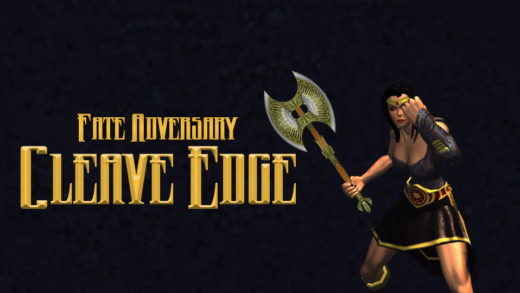Whether it’s on the sea, in space, or in the clouds, a campaign built around a ship presents some unique factors when running a game. Today’s topic includes some thoughts and anecdotes regarding running a ship-based game.
The Ship
In a ship-based game, the ship itself is a key focal point. It should feel like more than just a transport between plot devices and, instead, like a character itself. What is the name and story behind the name? What are some of the vehicle’s chief strengths or weaknesses? If it’s an older, or used ship, what are some of the stories or secrets it may have before the PCs commanded it. If it’s a new ship, what makes it unique from other models produced at the same time? For newer ships, the common trope is to make the ship a prototype, but I would also suggest adding uniqueness by the paint job or “extra options.”
My last ship-based game used the Fate system release of “Bulldogs!” I worked with the players to establish what kind of ship it was and the name. Being a largely comedic game in nature the players christened the ship as the “Kobayashi Maru,” a decommissioned war vessel now serving as a transport. In their words, it was like a ’57 Sports Car: classic looking, pretty fast, but tended to need repairs and leave oil spots where it parked.
The Captain
Every ship needs a captain, someone to give the final word or settle disputes. In many games, this becomes a player character whose player is trusted by the others. I’m personally preferential to the captain as an NPC who mainly presents the mission or adventure to the crew (the players) but is otherwise somewhat ineffectual as a leader and tends to rely on the advice of players. They both have their benefits (sometimes a strong party leader is required) and the decision of how the captain will be handled should be a decision the group makes. I did notice that, for the NPC style of captain, players would often defer leadership decisions to the character with the most skill in a particular circumstance.
More Than Transport Missions
Ship-based games are often thought of as a series of transport missions, taking goods from one port to another, and dealing with entanglements or the consequences of their delivery. While these missions do have their place, the benefit of ship-based games is that it can allow the players delivery to multiple settings and game genres. Entire sessions can be based around what the players are doing in a particular port and with whom they’re interacting. The deck of a ship is rife for crew role-play.
Repairs and Requisitions
Like port missions, the ship itself and the needs of the crew can be a recipe for a session or two. Repairs out of port, part acquisition, even food and comfort for the player characters can provide adventure seeds. Accidents happen, even in sci-fi, and the most innocuous purchase can spell hilarity. What if the purchasing ensign didn’t realize that the cleaner used causes half the shipmates to break out in hives?
Ultimate Player Freedom?
The trickiest part about any ship game is that it’s seemingly simple for the crew to turn down a plot hook and go their own way. For some GMs, having the PCs drive the campaign means being able to take a seat back and enjoy the ride, as it were. For others, the lack of a structured evening is far less than a thrill. It should be established with the group up front how much plot hooks may matter to the GM and players. If players desire plot hooks rather than coming up with their own schemes, this is equally important to note.


Recent Comments